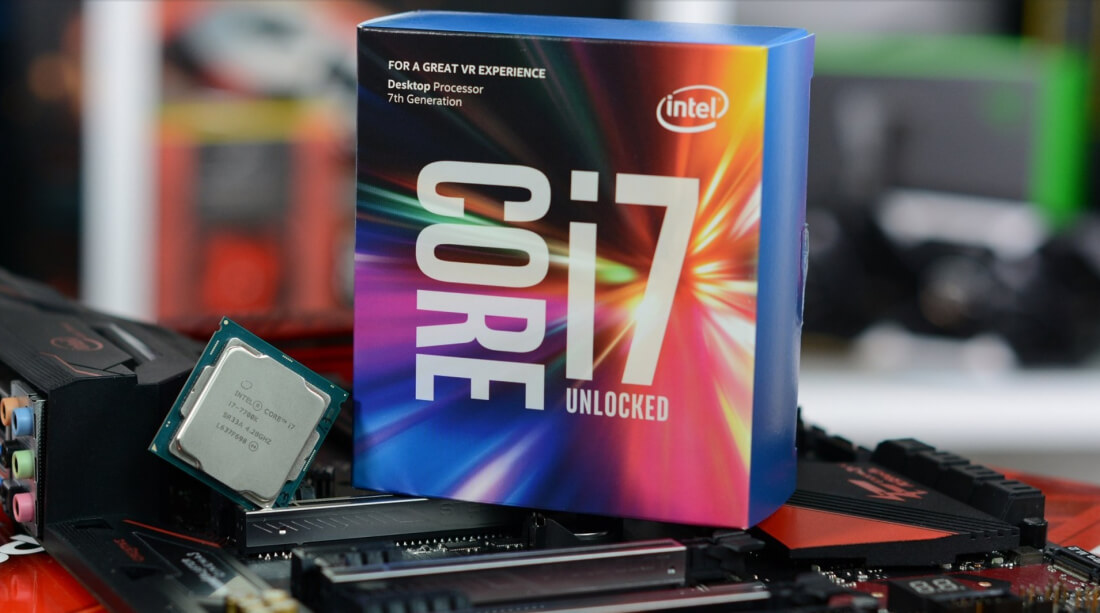If you own one of Intel's new i7-7700 and 7700K CPUs, you may be one of the few to notice the chips have been randomly spiking in temperature. There have been reports of them hitting 90C (194°F), which is uncomfortably close to the 100C (212°F) threshold. TechSpot's features editor Steve Walton touched on this in a video for Hardware Unboxed back in February.
Following three months of complaints, Intel has finally issued a response on the company's community forums: it says there is no problem with the CPUs.
"The reported behavior of the 7th Generation Intel Core i7-7700K Processor, showing momentary temperature changes from the idle temperature, is normal while completing a task (like opening a browser or an application or a program)," writes the chipmaker.
"In our internal investigation, we did not observe temperature variation outside of the expected behavior and recommended specifications. For processor specifications, please refer to the Intel Core i7-7700K Processor Product Specifications."
Despite everything being "normal," Intel is advising owners not to overclock their i7-7700K processors. Yes, the ones with unlocked multipliers that are meant to be overclocked.
"We do not recommend running outside the processor specifications, such as by exceeding processor frequency or voltage specifications."
For those who are mostly concerned about the noise of the cooling fans whirring up and down as the temperatures spike, Intel says: "Most motherboard manufacturers offer customizable fan speed control settings that may allow for smoother transition of fan revolutions per minute (rpm). Please consult your motherboard manufacturer's manual or website for instructions on how to change default fan speed control settings."
Unsurprisingly, users aren't happy with Intel's findings. "3 months waiting for Intel to come out with a solution , and now this ?! This is all you can say ?! We know already what you've just said .. You know what never mind this would be my last product from Intel," wrote forum member Meedy.
Overclocking a chip does void Intel's warranty (unless you take out its Performance Tuning Protection Plan), and some affected users did say they de-lidded the affected processors, which can cause problems. But Intel's line that there's nothing at all wrong with the chips and that people really shouldn't overclock them is making for some very unhappy customers.
